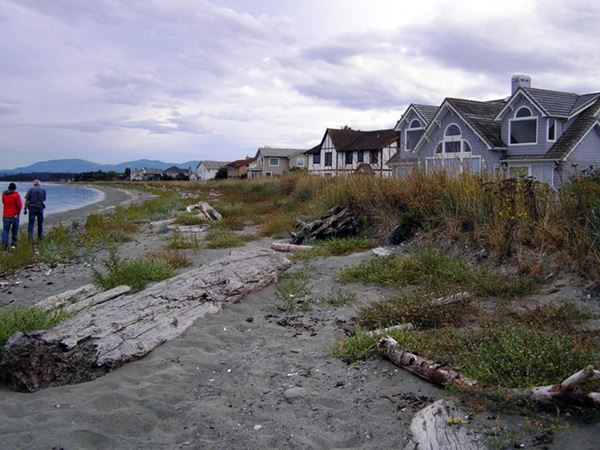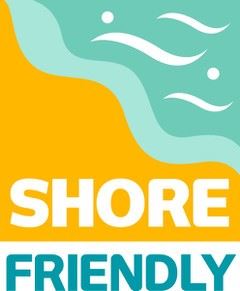
These courses are endorsed by the Shore Friendly program and the content is consistent with Shore Friendly recommended practices. This course is offered as part of a series of six courses related to Alternatives to Bulkheads. At this time the first two courses are being offered through CTP. Courses 3 – 6 are anticipated to be offered over the next few years.
This self-paced course will help you identify key aspects of shoreline and coastal processes relevant to sites within Puget Sound. It is especially geared toward shoreline planners, consultants, and marine contractors who are interested in implementing projects considered to be “soft” alternatives to bulkheads or armoring. This course will help you become familiar with general topics related to coastal processes, shoreline vegetation, marine habitat, weather impacts, and climate change. This overview of shoreline and coastal processes forms the basis of understanding all other aspects of shoreline stabilization and the alternatives to armoring.
This course will available to registrants from April 1st to May 10th. The course will take about 5 hours to complete. Upon completion, you will receive certificate for 5 AICP CM credits.
This course is a recommended pre-requisite to the upcoming class: Alternatives to Bulkheads: An overview of Local, State and Federal Permit Requirements.
Jeff Adams works on a wide range of aquatic and watershed issues from his field office in Bremerton. With colleagues from Washington State University and numerous other partnerships, Jeff develops and supports beach naturalist and watershed stewardship programs as well as their associated outreach and citizen science opportunities. He also works to encourage low impact development practices that help protect the region’s waters from stormwater runoff. Jeff holds a bachelor’s degree in Oceanography and a master’s degree in Aquatic and Fishery Sciences, both from the University of Washington.
Ben Alexander is co-owner of Sound Native Plants. He oversees SNP installation and maintenance programs, and provides professional consulting on project planning, design and permitting. Ben holds a Bachelor of Arts degree in Environmental Planning from the Evergreen State College, Olympia, WA, and is qualified to conduct the Riparian Function and Fish Habitat modules for Washington Department of Natural Resources Watershed Analyses.
Wendy Gerstel is a licensed Engineering Geologist and Hydrogeologist and owner /principal scientist of Qwg Applied Geology. She has over 30 years of experience working with Federal, State, and local jurisdictions, Tribes, non-profit groups, and private landowners throughout the U.S. and extensively in the Pacific Northwest. Since 1992 Wendy has provided coastal geologic, geomorphic, and hydrogeologic input to a range of research, mapping, mitigation, and restoration projects. She obtained a B.Sc. in Geology from the University of New Hampshire in 1980 and her MSc. in Geology from Humboldt State University, California, in 1989.
Dr. Ian Miller is Washington Sea Grant’s coastal hazards specialist, working out of Peninsula College in Port Angeles. Ian works with coastal communities and public agencies on the Olympic Peninsula to strengthen their ability to plan for and manage coastal hazards, including tsunamis, chronic erosion, coastal flooding and other hazards associated with climate change. He holds a bachelor’s degree in Marine Ecology from Western Washington University’s Huxley College of Environmental Studies and a Ph.D. in Ocean Sciences from the University of California, Santa Cruz.
Corey Morss is an Environmental Engineer working for the Washington Department of Fish and Wildlife Habitat Program. Corey provides technical assistance to WDFW Habitat Biologists statewide, as well as designing and constructing restoration projects in marine and freshwater environments. Corey has developed and delivered trainings on water crossings, marine shoreline protection (MSDG), fluvial geomorphology, reading engineering plans, and fish friendly construction considerations. Corey is passionate about the outdoors and spends most of his spare time hiking, camping, backpacking, hunting, fishing, boating or dreaming about those things.

These courses are endorsed by the Shore Friendly program and the content is consistent with Shore Friendly recommended practices. Participation in the training program does not indicate any form of endorsement of attendees by the Shore Friendly program, nor does participation assume subsequent work conducted by a participant adheres to Shore Friendly principles.
Funded wholly or in part by EPA under grant #PC-01J22301 (NEP Habitat Strategic Initiative).
